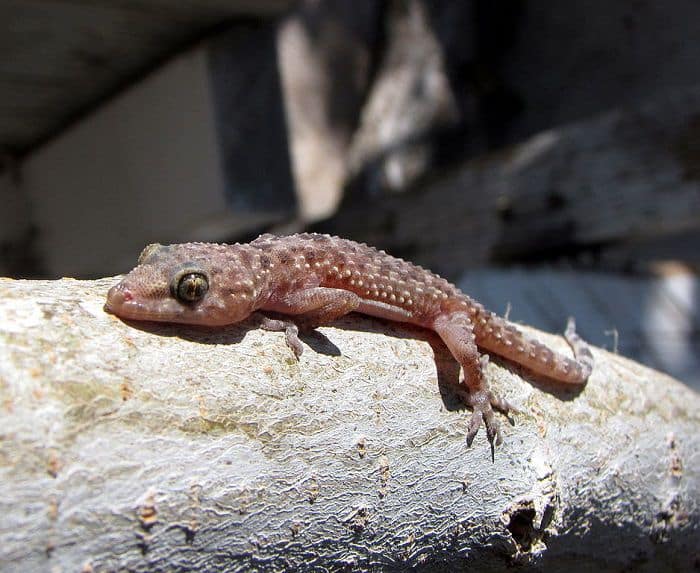Table of Contents
If you’ve noticed that your lizard doesn’t seem to be moving about as much as usual, you are naturally going to be worried for its welfare. Although lizards do spend much of their time basking under the warmth of their heat lamps, they should still be moving about their enclosures during the day.
Your first instinct may well be that your lizard is unwell. While this could very well be the reason for its lethargy, there could be another cause. The least serious reason for a lizard that is not moving about as much is incorrect temperatures in the enclosure.
that is not moving about as much is incorrect temperatures in the enclosure.
You are most likely already aware (or you should be) that lizards are cold-blooded creatures and so require artificial heating to mimic their natural surroundings. It is essential that your lizard’s enclosure has a temperature gradient (warmer and cooler sides) that will help it to regulate its temperature. There should also be a basking area where the temperatures are higher. These temperature ranges should be of the order of around 75F at the cooler end and 85F at the warmer end; the basking temperature should be higher, at around 90F to 95F. A drop to around 70F at night is ideal.
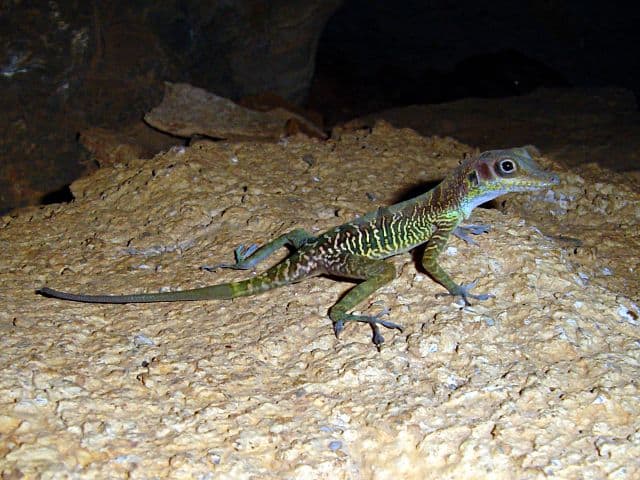
Western Cliff Anole 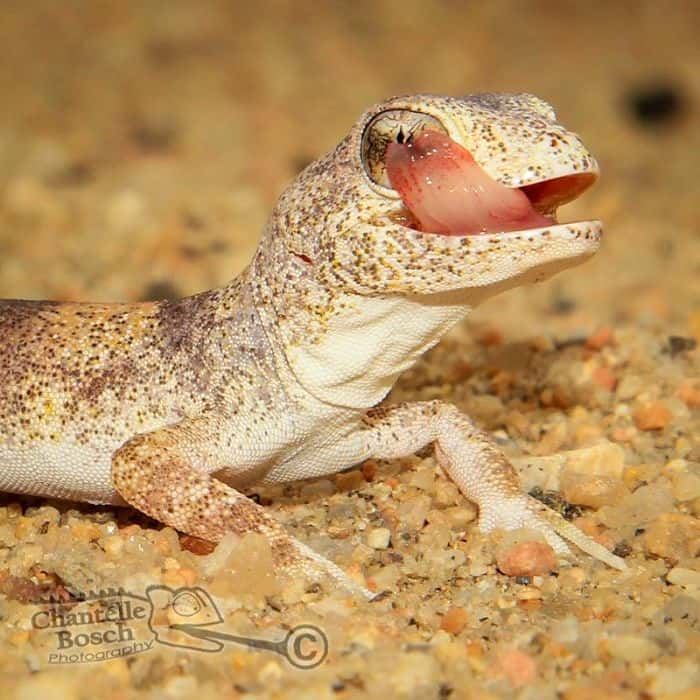
Carp’s Barking Gecko 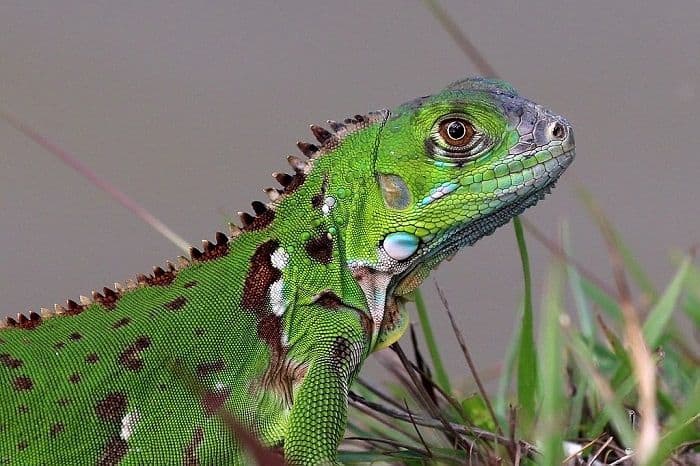
Green Iguana
Is the Lizard Too Cold?
If the daytime temperature of your lizard’s enclosure drops too much, this means it is not getting the heat it needs to function properly. A marked drop in the enclosure’s ambient temperature will see a subsequent slowing of the creature’s metabolism as it tries to conserve energy. Consequently, the lizard might stop moving about and is highly likely to lose its appetite.
It is essential therefore that you keep an eye on the thermometer of your lizard’s enclosure to ensure the correct temperature is maintained.
Why Is My Lizard Always Sleeping?
Lizards are diurnal (active during the day) and require a day/night schedule, so it is important to provide this for your pet. This means lowering the temperature at night and switching off the UV lights in the enclosure. Your lizard will probably sleep for between 8-12 hours at night.
If you find that your lizard seems to be sleeping a lot, then you are bound to be concerned. However, many of the reasons for excessive sleeping are nothing to be majorly worried about. For example, a new lizard may be sleeping more than you might expect due to stress. Baby lizards will often sleep when stressed, which can often be due to the move to its new environment. It is not uncommon for this behavior to continue for a couple of weeks.
A growth spurt could also result in an increase of sleep for your lizard. Young lizards grow quite quickly and prior to their growth spurt they might be more inclined to rest.
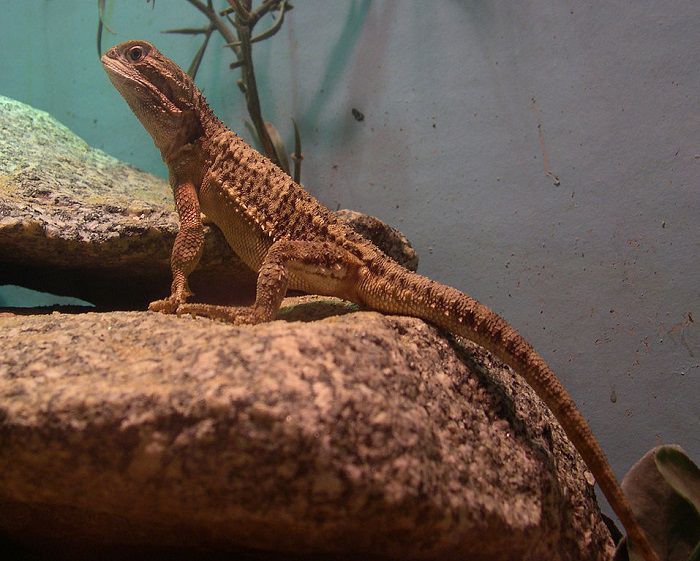
Dragon Lizard 
Common Grass Anole 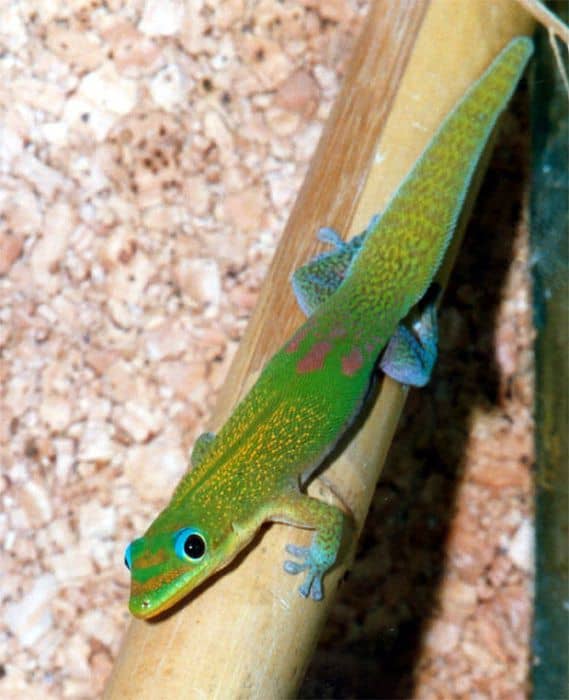
Gold Dust Day Gecko
Is My Lizard Ill?
When you see your pet lizard sleeping more often than usual, or not moving, you might be worried that it is ill. Indeed, in some cases, lethargy can be a sign of illness. Impaction (constipation) can cause a lizard to become lethargic. This can happen when lizards eat something that they shouldn’t have, such as their substrate or from eating food that is too large or too high in fat. If the lizard is unable to poop due to compaction then this will cause it to become uncomfortable and unable to move about much.
You can try to alleviate this problem by gently rubbing your lizard’s belly or putting it in a warm bath. If this doesn’t help then contact your vet, who may be able to provide a laxative if necessary.
Lethargy by itself is not necessarily a sign of illness, but if you notice other signs then it may be time to contact a vet. If you notice that your lizard is not eating, is losing weight, has sunken eyes, or has had diarrhea, an infection could be the culprit.
It is important to know the normal behaviors of your lizard so that you are alert to any changes. Sleeping a lot could just be the result of stress or incorrect temperatures, but it could also be an early sign of illness. If you are worried, talk to your vet and have your lizard examined.

Photo Credits:
- Featured Image (Mediterranean House Gecko): ZooFari
 – CC BY-SA 3.0
– CC BY-SA 3.0 .
. - Dragon Lizard: Magalhães
 – public domain
– public domain .
. - Common Grass Anole: Príncipe Castro
 – CC BY-SA 2.0
– CC BY-SA 2.0 .
. - Gold Dust Day Gecko: Jurriaan Schulman
 – CC BY-SA 3.0
– CC BY-SA 3.0 .
. - Western Cliff Anole: Fernando Herranz Martín – CC BY-SA 2.5 ES
 .
. - Carp’s Barking Gecko: JonRichfield
 – CC BY-SA 4.0
– CC BY-SA 4.0 .
. - Green Iguana: Sharp Photogr
 aphy – CC BY-SA 4.0
aphy – CC BY-SA 4.0 .
.

